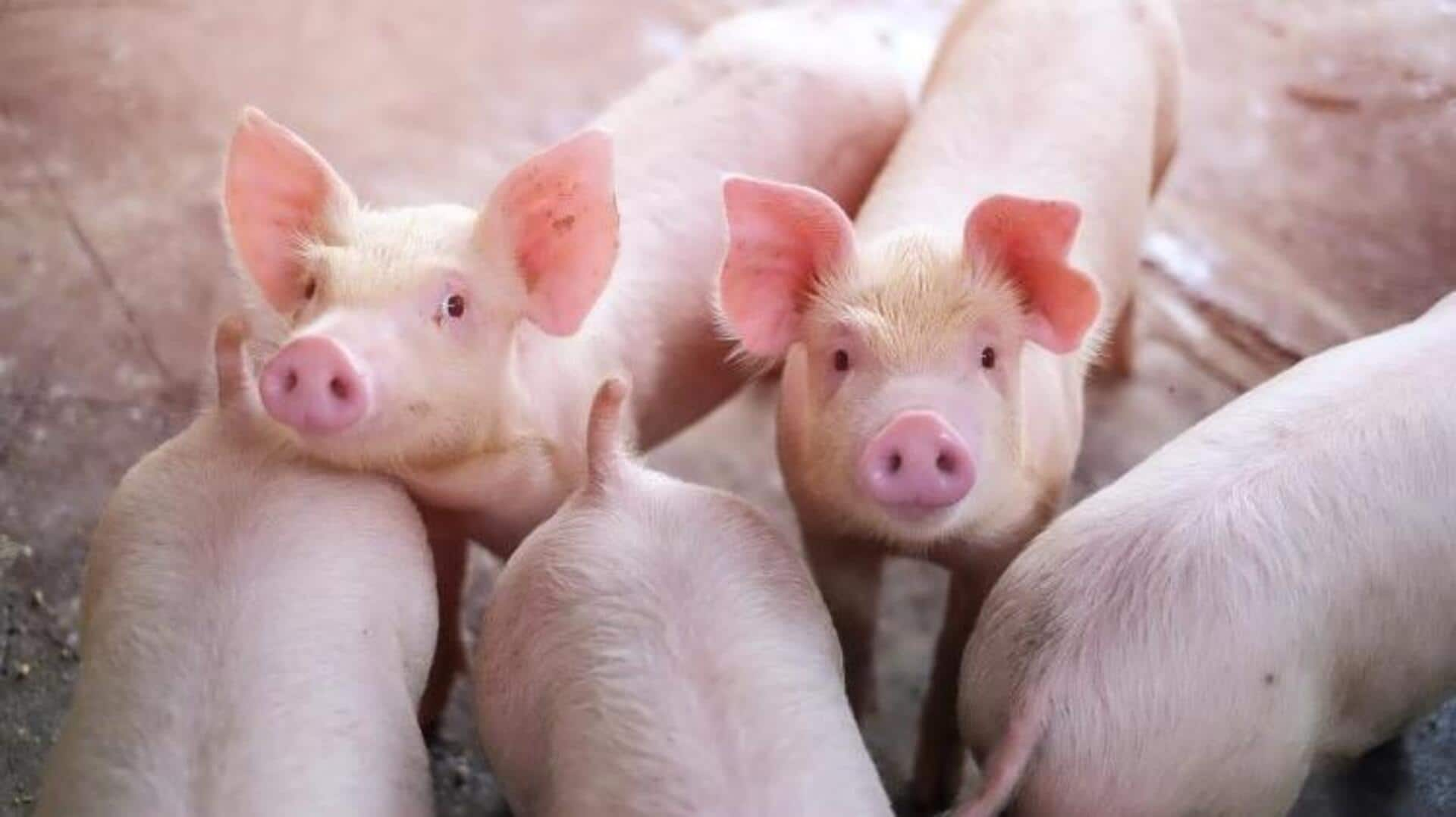
FDA approves gene-edited pigs as food: Here's why it matters
What's the story
The US Food and Drug Administration (FDA) has approved the consumption of gene-edited pigs, developed by UK-based biotechnology firm Pig Improvement Company (PIC). The company used CRISPR, a powerful gene-editing tool, to develop pigs resistant to Porcine Reproductive and Respiratory Syndrome (PRRS), a viral infection common among swine globally. Matt Culbertson, COO at PIC, said, "We have spent years conducting extensive research...and working with the FDA to gain approval," in a statement to the National Pig Association in the UK.
Scenario
PRRS: A major concern for pig livestock
PRRS has become a major concern for pig livestock over the past few decades. It is widely spread and deeply destructive to the industry, causing reproductive failure in breeding pigs and killing off young pigs. According to the World Organization for Animal Health, PRRS costs the US $560 million annually.
Method
Gene editing technique explained
PIC's gene editing technique consists of knocking out a receptor on pig cells that is often hijacked by the PRRS virus to cause infection. This makes the pigs resistant to almost all strains of the PRRS virus in circulation today, although some rare subtypes may still pose a risk. The edit is introduced into early embryos, which are then implanted into gilts (female pigs that have reached maturity but have yet to give birth).
Background
FDA's previous approvals and potential impact
This isn't the first time the FDA has approved gene-edited animals for food consumption. In 2020, Revivicor's Galsafe pigs were approved for use in both medicine and food. These pigs have been modified to eliminate the sugar alpha-gal in their muscles, which can cause allergies in some people and make pigs unsuitable for organ transplants. However, PIC's method is fairly simple (removing a gene) and could lead to mass breeding and consumption of these pigs.
Expansion
Future plans and availability
PIC and its parent company, Genus, plan to seek approval in other major markets where pork is produced or imported widely, such as Mexico, Canada, and China. They do not anticipate their pigs hitting the shelves in the US until 2026 at the earliest. PIC's method could be a major step toward bringing other genetically engineered meat products that are safer or more disease-resistant.